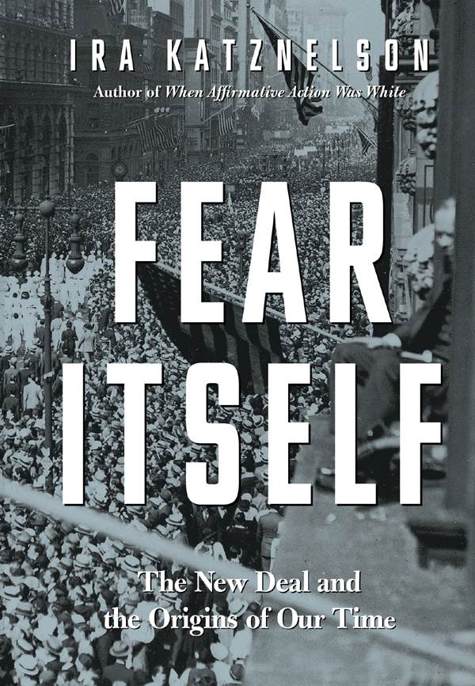
Fear Itself
The New Deal and the Origins of Our Time
کتاب های مرتبط
- اطلاعات
- نقد و بررسی
- دیدگاه کاربران
نقد و بررسی

December 17, 2012
Katznelson revivifies an often shop-worn subject in this new history of the New Deal. Rather than seeing FDR’s brainchild as simply a great experiment in economic recovery and the enlargement of government responsibility, Katznelson emphasizes three often neglected aspects of that extraordinary era—which, it’s worth noting, he dates from 1933 to 1952 (e.g., through Truman’s White House years). The first is the fear—of poverty, totalitarianism, and atomic warfare—that hung over those two decades. The second is the pressure that the examples of Nazi and Soviet regimes put on American politics. And the third is the “southern cage,” a “Faustian terrible compromise” that held American government and the New Deal itself in the grip of racialist and militarily assertive policies. Emphasizing the long New Deal, putting it in its global context, and shifting the focus from the White House to Congress makes this book a major revision of conventional interpretations. But it’s the extent of the permeating influence of Southern Democrats on national politics that is the work’s revelation—Katznelson rues the New Deal’s surrender to special interests at the expense of the public good. Overall, a critical and deeply scholarly work that, notwithstanding, is compulsively readable. 24 illus. Agent: Gloria Loomis, Watkins/Loomis Agency.

























دیدگاه کاربران